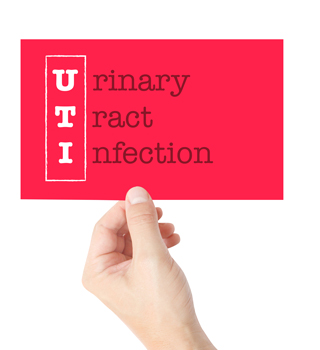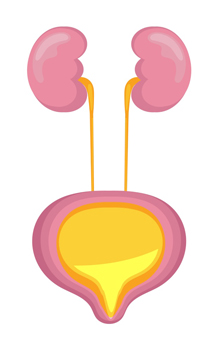It is known that about half of women suffer from it at least once in their lifetime.


Urinary Tract Infection
Another name?
- cystitis, urethritis
What are the symptoms?
- The amount of urine is small, but frequent urination.
- There is pain and burning sensation during urination.
- There is pain in the lower abdomen.
- Cloudy or bloody urination.
- There is a strong unpleasant odor from urine.
What are the causes?
- It is caused by abnormal growth of bacteria in the bladder.
- 80% or more is caused by E. Coli.
- Because the urethra of women is shorter than that of men, there are absolutely many female patients. (This is because the germ-rich anus and the vaginal entrance where germs can grow well are close to the urethra, so bacteria can easily move toward the bladder.)
How is the diagnosis?
- It can be easily diagnosed through clinical symptoms and urine tests.
How is the treatment done?
- With antibiotics, it can be treated with short-term therapy for 3 to 7 days.
What are the risk factors?
- Severe stress or overwork
- Before and after menstruation-Sexual intercourse
- Postmenopausal women who have weakened urethra due to lower concentration of female hormones
- Urine with a lot of sugar in diabetic patients, which promotes the growth of bacteria in the urine
What are the complications?
- If early treatment is not done quickly, it can lead to chronic cystitis. (If it occurs more than 3 times a year, it can be called chronic cystitis.)
- Sometimes, when the bacteria go up to the upper urinary tract and affect the kidneys, it may cause pyelonephritis. Sepsis may also occur if the infection spreads to the blood.
* As important as treatment is the following preventive measures.
- Women’s frequent douching reduces vaginal acidity, suppressing normal bacteria that maintain normal body defense. So, it is better not to do douching.
- After urinating, when wiping the vaginal area with a tissue, always wipe from front to back, i.e. from the entrance of the urethra to the anus.
- After sexual intercourse, the bacteria that lived in the vagina move to the entrance of the urethra due to sexual activity, leading to infection. So, it is often referred to as ‘honeymoon cystitis’. It is a good idea to empty the bladder by urinating after sexual intercourse.
- If you use vaginal cleaners, soaps, etc. too often, you need to be careful as they can kill the good bacteria that protect the vagina and cause other pathogenic bacteria to multiply.
- The habit of holding up urine for a long time is not good.
- You should avoid the lifestyle that lowers your immunity such as overwork and stress.
- If you drink about 8 cups of water a day, the amount of urine increases, which can suppress bacterial growth.
- It is often recommended to avoid drinking coffee, tea, soda, alcohol, etc. that irritate the bladder.
Yoon Park, MD
Family Medicine
Edmonds Medical Clinic